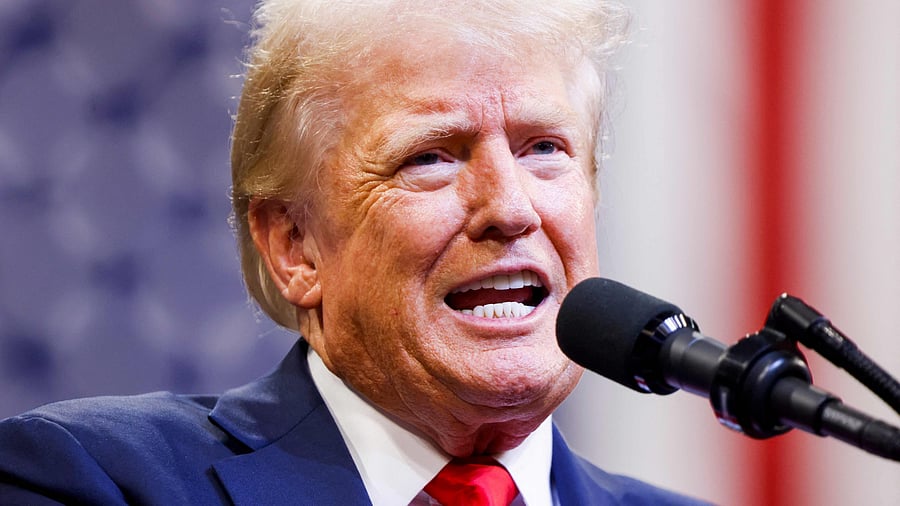
US President Donald Trump.
Credit: Reuters Photo
The Trump administration has been discussing severe restrictions on medicines from China that, if enacted, could upend the American pharmaceutical industry and availability of everything from generic drugs to cutting-edge treatments.
At the heart of the possible clampdown is a drafted executive order that threatens to cut off the pipeline of Chinese-invented experimental treatments. Major pharmaceutical companies have been buying the rights to drugs created in China for cancer, obesity, heart disease and Crohn’s disease.
The prospect of the order, a draft of which was obtained by The New York Times, has set off furious behind-the-scenes lobbying efforts by two diametrically opposed groups each with billions of dollars at stake.
Prominent investors and corporate executives with close ties to the White House, including tech billionaire Peter Thiel, Google co-founder Sergey Brin, the Koch family and staff at the investment firm run by President Donald Trump’s son-in-law Jared Kushner, have argued for a decisive crackdown against what they view as an existential threat by China to U.S. biotechnology, according to four people briefed on their lobbying who asked for anonymity to discuss private conversations.
These investors have money at risk because they hold hard-to-sell investments in fledgling American companies that have been struggling to keep up with China’s surging biotech sector.
On the other side are the world’s largest drugmakers, including Pfizer and AstraZeneca. In the past few years, they have been on a shopping spree in China for low-priced experimental drugs, spurning smaller American biotech companies that are developing similar medicines.
Democrats and Republicans have called the United States’ reliance on China for medicines a national security vulnerability. In 2020 and this year, Trump issued a series of executive orders calling for more U.S. drug manufacturing. And he has been threatening for months to impose tariffs on medicines imported from China and other countries as part of the administration’s broader protectionist push.
A White House spokesperson, Kush Desai, said in a statement Monday that the administration was not “actively considering” the draft executive order. “Safeguarding our national and economic security is a top priority for the administration,” Desai said.
But as recently as last week, administration officials were soliciting feedback from U.S. biotech investors, including exchanging versions of the draft executive order, according to three of the people involved in the discussions.
Aides to Stephen Miller, Trump’s deputy chief of staff, have been involved in a back-and-forth with the investors for several months, those people said.
The moves would mark Trump’s first targeting of the critical pipeline of experimental drugs from China, which drug companies are betting on for future profits in the U.S. market.
But China’s critics warn that action is needed, because American patients could also be denied new cures if China’s rise cripples the U.S. biotech industry. The fear is, because Chinese companies can move more quickly and cheaply, investors will sour on American startups, making it too hard for them to raise money and develop drugs.
People who want more drug manufacturing moved to the United States say it will help safeguard American patients against supply shortages, which have grown common, especially if a future pandemic prompts China to curtail exports.
A draft of the executive order sent to billionaire backers and big-name pharmaceutical companies says China “and other hostile actors have exploited gaps in our open scientific and regulatory systems.”
The draft order calls for boosting U.S. production of several types of medicines that are believed to have substantial production in China, including antibiotics and the pain reliever acetaminophen, or generic Tylenol, a dynamic that Commerce Secretary Howard Lutnick flagged during a CNBC interview Friday.
The order proposes that once American production of these drugs ramps up, the government should give preference to those products in its purchasing. The order also proposes offering tax credits to companies that move their manufacturing to the United States.